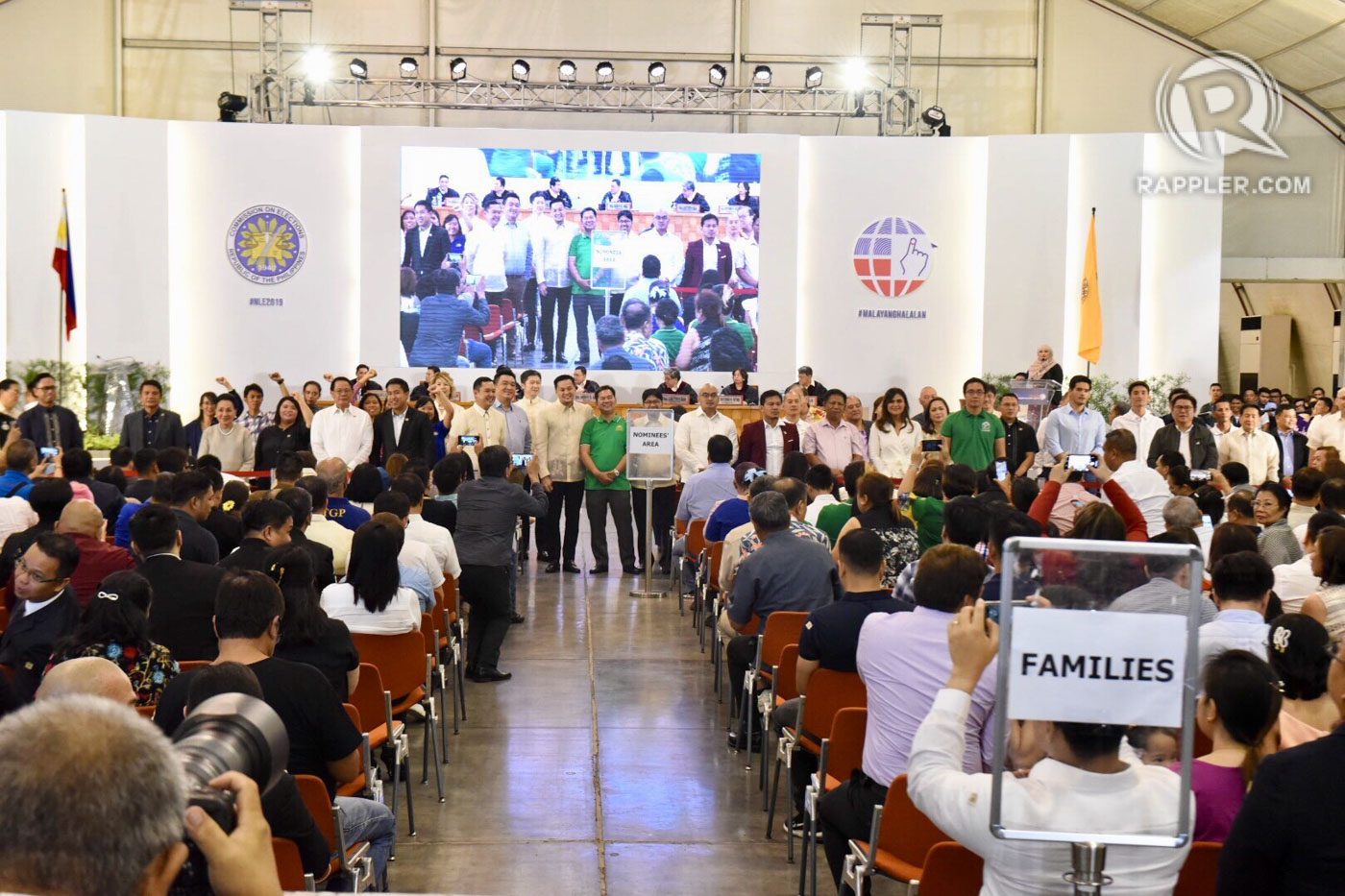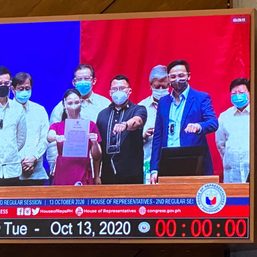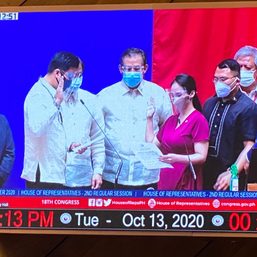SUMMARY
This is AI generated summarization, which may have errors. For context, always refer to the full article.

The Supreme Court has upheld the formula for computing the winners in the party-list elections, allowing the current party-list lawmakers in the House of Representatives to keep their seats.
“The proclamation by the Comelec of the winning party-list groups during the 13 May 2019 elections in accordance with the formula espoused in the Banat Case was upheld,” Supreme Court Spokesperson Brian Keith Hosaka said in a statement.
The Banat case refers to a 2009 Supreme Court decision that laid down the formula for computing party-list winners.
It provided a methodology to Section 11 of Republic Act No. 7941 or the Party-list System Act, which provides that 20% of the total seats in the House shoud be alloted to the party list.
Section 11(b) says party-list groups receiving at least 2% of the total votes for the party list get one seat each, and those with more than 2% of votes get to have additional seats in proportion to the total number of votes.
Section 11 and the Banat formula allowed 51 party-list groups to get congressional seats in the 2019 midterm elections, with Anti-Crime and Terrorism Community Involvement and Support (ACT-CIS) and Bayan Muna getting the maximum 3 seats each. Six other party-list groups got two seats each, while the rest got a seat each. (READ: 2019 party list winners: Where their votes came from)
Petitioners Ang Partido ng Mga Marinong Pilipino, Inc. (Angkla), Serbisyo sa Bayan (SBP) and Aksyon Magsasaka-Tinig Partido ng Masa (AKMA-PTM) were just behind at numbers 54, 53, and 52, respectively.
The petitioners wanted to declare Section 11(b) unconstitutional, saying that the provision results in “double counting” of votes for party-lists gaining more than 2% of the votes.
Seven justices voted to deny the petition and retain the formula in the Banat case. They are Associate Justice Amy Lazaro-Javier, who was ponente, with concurrences from Senior Associate Justice Estela Perlas-Bernabe and Associate Justices Marvic Leonen, Jose Reyes, Jr, Rosmari Carandang, Henri Jean Paul Inting, and Mario Lopez.
“The interpretation of Section 11(b) of RA 7941 had long been settled in the case of Barangay Association for National Advancement and Transparency (BANAT) vs. COMELEC, G.R. No. 179271 decided by the Supreme Court on 08 July 2009,” said Hosaka.
Hosaka also said the justices also considered an internal rule in the Supreme Court where a majority of 8 votes out of 15 are needed to void a law such as Section 11(b).
“In the present case, the majority vote required by the Constitution to annul and declare a law unconstitutional was not reached. Hence, in view of the provision in the Constitution requiring a majority vote in declaring a law unconstitutional, and pursuant to Rule 12, Section 2 of the Internal Rules of the Supreme Court, the Court denied the Petition,” said Hosaka.
“Section 11(b) of RA 7941 was not declared unconstitutional,” Hosaka added.
Associate Justice Benjamin Caguioa both concurred and dissented; it was not clear to which ruling the justice concurred and dissented to.
Chief Justice Diosdado Peralta and Associate Justices Alexander Gesmundo, Ramon Paul Hernando, Rodil Zalameda, Edgardo delos Santos, and Samuel Gaerlan dissented. – Rappler.com
Add a comment
How does this make you feel?



There are no comments yet. Add your comment to start the conversation.